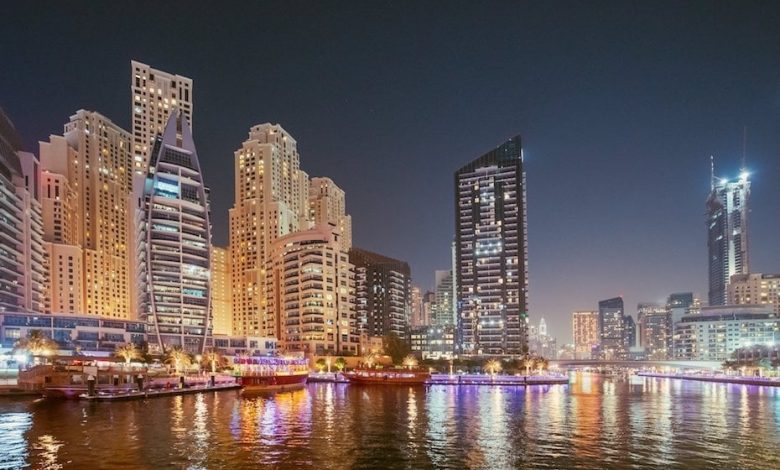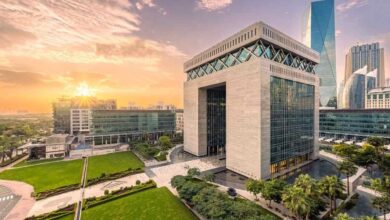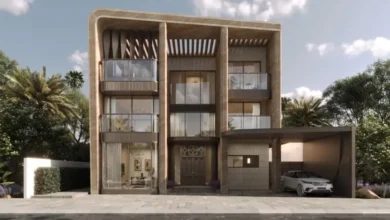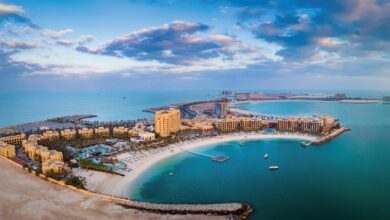
- Investors eye the market with anticipation, recognizing the potential for lucrative investment opportunities in both sales and rental markets amidst the influx of new properties.
The latest insights from JLL’s UAE Real Estate Market Overview for Q1 2024 reveal a buoyant investor sentiment driving significant activity across various sectors in the UAE.
The residential market in Dubai kicked off 2024 with excitement, witnessing the completion of approximately 10,000 units in Q1 alone, pushing the total stock to 729,000 units, the report revealed.
An additional 25,000 units are slated for delivery by year-end, with prime areas such as MBR City and Business Bay leading the charge.
Abu Dhabi, too, saw a steady influx of residential units, with 1,600 completed and another 6,000 expected by the close of the year.
Faraz Ahmed, research director at JLL MENA, noted a 20 per cent increase in residential sales transactions in Dubai and a 17 per cent uptick in Abu Dhabi.
“However, escalating land prices and construction costs are compelling developers to shift their focus towards secondary locations in addition to targeting properties within the Dhs2m price range, enabling buyers to meet the threshold for the Golden Visa eligibility,” he said.
In terms of pricing, both Dubai and Abu Dhabi witnessed substantial annual increases, with sale prices and rentals soaring, particularly for apartments.
Read: Abu Dhabi’s most expensive penthouse is sold, here’s what it cost
Dubai’s apartment rentals saw a remarkable surge of 22 per cent, outpacing villa rentals at 14 per cent. Meanwhile, in Abu Dhabi, villa sale prices surged by 9 per cent year-on-year (YoY).
UAE hospitality growth boosts demand
Dubai’s hospitality sector welcomed nearly 2,000 new hotel keys in Q1 2024, with upscale properties in areas like Business Bay leading the charge. The emirate anticipates the addition of another 5,000 keys throughout the year.
Abu Dhabi’s hotel supply remained stable, with an additional 500 keys expected.
Dubai’s tourism sector witnessed an 18 per cent increase in visitors compared to the previous year, sustaining a 5 per cent growth in average daily rates. Abu Dhabi’s hotel performance was equally robust, recording an 8 per cent YoY increase in ADR (average daily rate).
Steady demand despite limited supply in office segment
Dubai’s office market experienced limited new deliveries, with around 17,000 sqm of space added in Q1 2024. However, strong demand from corporate occupiers persisted, particularly for fitted spaces.
Abu Dhabi’s office market remained stable, with 79,000 sqm of new space scheduled for the year.
Rental rates surged in both cities, with Grade A rents in Dubai’s CBD jumping by 22 per cent YoY, while Abu Dhabi saw a 14 per cent increase in average city-wide rents.
Limited space availability in prime malls is driving the focus towards smaller community malls in both Dubai and Abu Dhabi. Owners are investing in refurbishments and introducing experiential concepts to enhance the retail landscape.
Approximately 12,000 sqm of new retail space was added in Dubai in Q1 2024, with another 104,000 sqm expected throughout the year.
Industrial sector shows robust growth
The UAE industrial sector saw increased demand, driven by the new India-UAE trade agreement and growing e-commerce activities.
Warehouse rents in key areas surged, with JAFZA witnessing a notable 26 per cent annual increase, averaging Dhs365 per sqm per annum.
Responding to escalating demand, developers are tackling supply shortages through strategic collaborations. Notably, Dubai South and Aldar have joined forces to develop Dubai South’s Logistics District.
This initiative aims to construct a Grade A build-to-lease logistics facility covering approximately 24,000 sqm, with completion slated by year-end.
Meanwhile, Abu Dhabi’s industrial sector witnessed robust demand in Q1 2024, buoyed by non-oil sector growth and expanding e-commerce activities. Rental rates in major submarkets soared, fueled by rising spillover demand from Dubai due to limited Grade A spaces.
Industrial areas like Khalifa Economic Zones Abu Dhabi (KEZAD) and the Industrial City of Abu Dhabi (ICAD) attracted heightened tenant interest.
Warehouse rents in ICAD surged by 6 per cent annually to Dhs370 per sqm per annum, while KEZAD saw a 5 per cent increase, reaching Dhs400 per sqm per annum. KEZAD’s Grade A supply positions it favorably for tenants seeking high-quality warehouse facilities.





